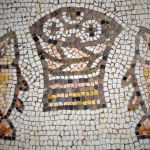
Our reading this week is very similar to Luke’s, but again, in John, this is happening after the crucifixion and resurrection. The timing in John is intentional. It was to remind his disciples that even though Rome’s crucifixion of Jesus and the resurrection rumors now circulating among the Jesus community had turned their worlds upside down, the work of fishing for people hadn’t changed. I have written at length about how the original audience would have understood this imagery of fishing (see Fishing for People and Speaking Truth to Power). Ched Myers gives us some insight on how the original audience of the gospels would have heard the phrase “fishing for people”:
Welcome Readers! Please subscribe to Social Jesus Here.
This is Part 2 of Justice Work is Holy Work
(Read this series from its beginning here.)
“There is perhaps no expression more traditionally misunderstood than Jesus’ invitation to these workers to become ‘fishers of men.’ This metaphor, despite the grand old tradition of missionary interpretation, does not refer to the ‘saving of souls,’ as if Jesus were conferring on these men instant evangelist status. Rather the image is carefully chosen from Jeremiah 16:16, where it is used as a symbol of Yahweh’s censure of Israel. Elsewhere the ‘hooking of fish’ is a euphemism for judgment upon the rich (Amos 4:2) and powerful (Ezekiel 29:4). Taking this mandate for his own, Jesus is inviting common folk to join him in the struggle to overturn the existing order of power and privilege.” (Ched Myers, in Binding the Strong Man: A Political Reading of Mark’s Story of Jesus, p. 132)
“In the Hebrew Bible, the metaphor of ‘people like fish’ appears in prophetic censures of apostate Israel and of the rich and powerful: ‘I am now sending for many fishermen, says God, and they shall catch [the people of Israel]…’ (Jeremiah 16:16) ‘The time is surely coming upon you when they shall take you away with fishhooks…’ (Amos 4:2) ‘Thus says God: I am against you, Pharaoh king of Egypt…. I will put hooks in your jaws, and make the fish of your channels stick to your scales…’ (Ezekiel 29:3f) Jesus is, in other words, summoning working folk to join him in overturning the structures of power and privilege in the world!” (Ched Myers, Marie Dennis, Joseph Nangle, Cynthia Moe-Lobeda & Stuart Taylor, in Say to This Mountain: Mark’s Story of Discipleship, p. 10)
The passages the disciples would have associated with Jesus’ call of fishing for people were rooted in the Hebrew prophetic justice tradition about catching and removing those in positions of power who use their authority unjustly:
“But now I will send for many fishermen,” declares the LORD, “and they will catch them. After that I will send for many hunters, and they will hunt them down on every mountain and hill and from the crevices of the rocks. (Jeremiah 16:16)
Speaking of those who “oppress the poor and crush the needy,” Amos reads:
The Sovereign LORD has sworn by his holiness: “The time will surely come when you will be taken away with hooks, the last of you with fishhooks.” (Amos 4:2)
And speaking of the abusive king of Egypt, Ezekiel reads:
In the tenth year, in the tenth month on the twelfth day, the word of the LORD came to me: “Son of man, set your face against Pharaoh king of Egypt and prophesy against him and against all Egypt. Speak to him and say: ‘This is what the Sovereign LORD says:
‘“I am against you, Pharaoh king of Egypt,
you great monster lying among your streams.
You say, “The Nile belongs to me;
I made it for myself.”
But I will put hooks in your jaws
and make the fish of your streams stick to your scales.
I will pull you out from among your streams,
with all the fish sticking to your scales.
I will leave you in the desert,
you and all the fish of your streams.
You will fall on the open field
and not be gathered or picked up.
I will give you as food
to the beasts of the earth and the birds of the sky.
Then all who live in Egypt will know that I am the LORD. (Ezekiel 29:1-6)
John’s placement of this story after the crucifixion was a reminder to the post resurrection Jesus community that the nature of what it means to follow Jesus hadn’t changed. Everything the enemies of that work had sought to accomplish through Jesus’ murder had been undone, reversed, and triumphed over through the resurrection. And now the life-giving work of the kingdom must continue in the lives and teaching of Jesus’ followers. It was now time for them to take up Jesus’ ministry themselves. What was meant to permanently stop Jesus’ work had, through the resurrection, proven to only temporarily interrupt it. What happens next is also meaningful.
We’ll consider lessons we can glean from the next exchange in Part 3.
Are you receiving all of RHM’s free resources each week?
Begin each day being inspired toward love, compassion, justice and action. Free.
Sign up at HERE.















